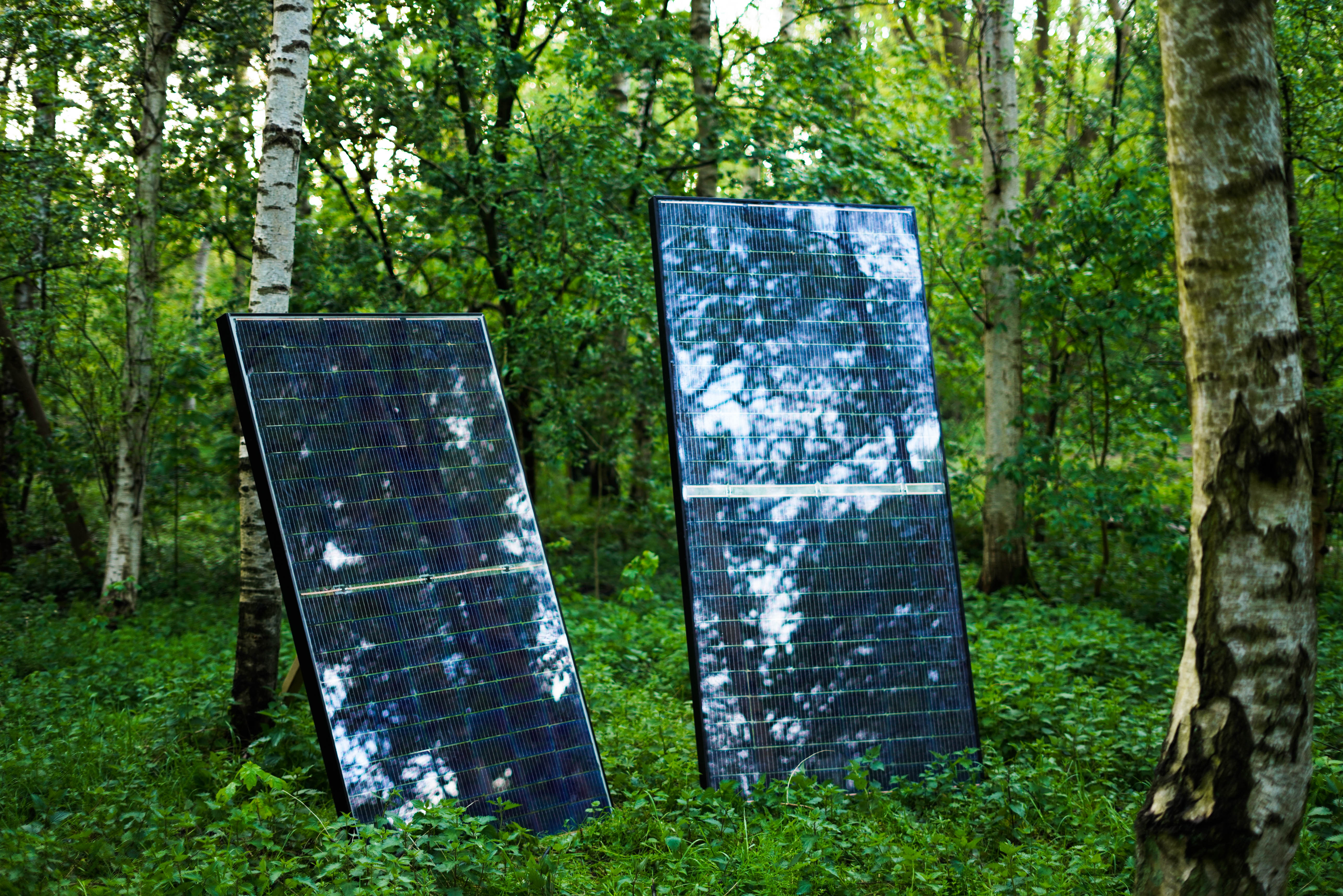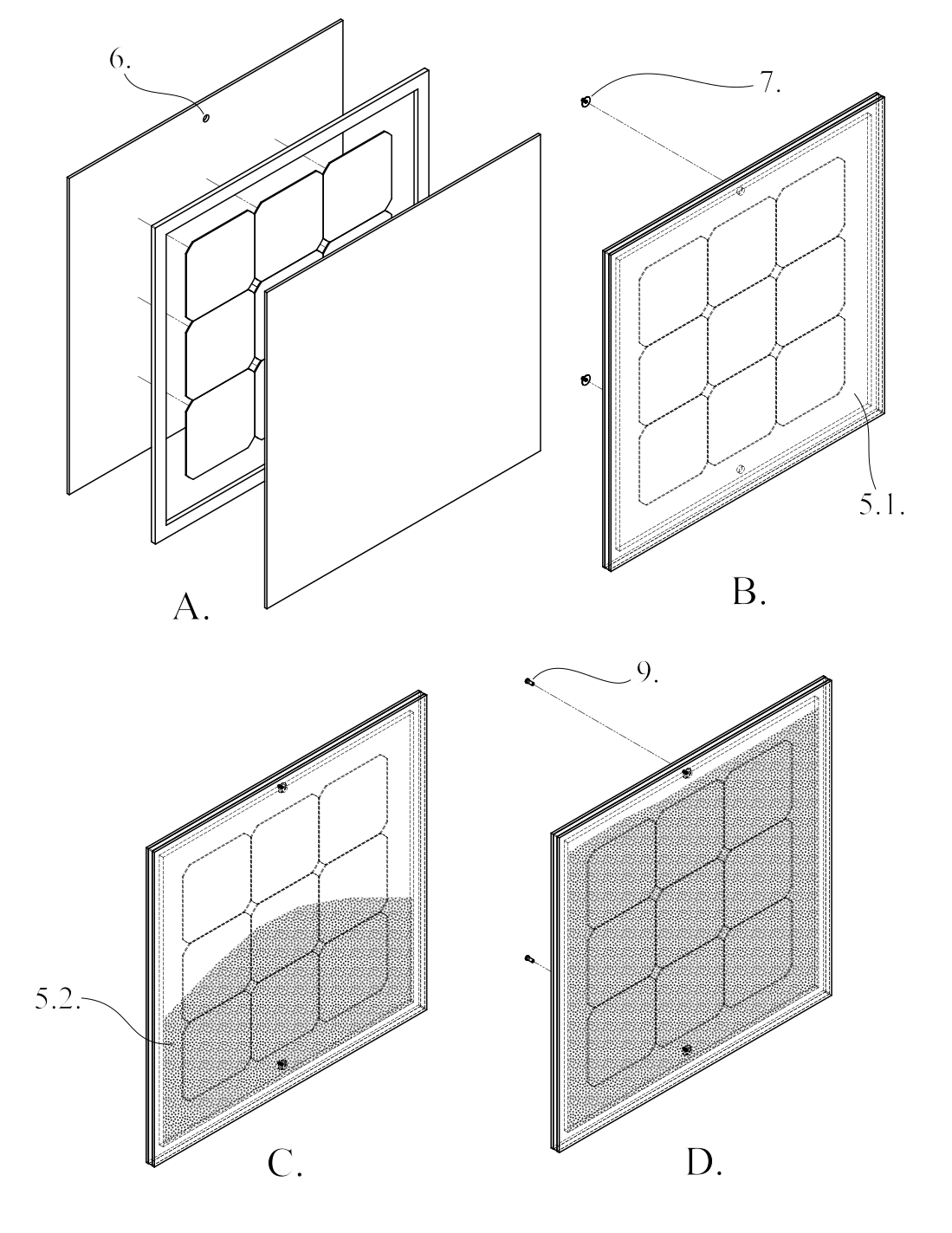Shaping a circular industrial ecosystem and supporting life-cycle thinking
Fully Circular Solar Panel
{Empty}
Biosphere Solar is developing a lamination-free PV module, a solar panel that is fully modular by design. The panel can be taken apart in easy steps, enabling for the first time ever in the solar market: complete repair, refurbishment and recycling of solar panels, in a simple and cost-effective way. The dis-assemblable design of PV panels enable a longer product life span, as well as extraction of valuable raw materials, and a more cost-efficient manufacturing.
Netherlands
National
It addresses urban-rural linkages
It refers to a physical transformation of the built environment (hard investment)
Prototype level
Yes
Horizon2020 / Horizon Europe
No
As a representative of an organisation
Biosphere Solar advances the sustainability of renewable energy production by incorporating circular manufacturing principles for photovoltaics (PV) production. The product design allows re-/dis-assembly of PV panels, making them repairable for a longer product life span, as well as making the extraction of valuable raw materials easy for recycling.
PV is one of the most important renewable energy sources available today, as it delivers solid-state, low cost, and efficient clean energy. PV energy generation is growing at a rapid rate worldwide and so is the production of PV modules. Despite tremendous product development over the previous decades, PV modules are still immensely difficult to recycle and impossible to repair. Recycling efforts only recover glass and metal parts, while the most precious materials within the solar cells end up on landfills or are crushed and downcycled. The total amount of PV waste is expected to reach 78 million tonnes by 2050. It is projected that in a world fully powered by renewables, PV will provide >65% of the world’s electricity generation. However, the rapid expansion of global PV infrastructure comes at a cost. It is estimated that this production alone will emit 4-11% of the total carbon budget for the 1.5°C climate goal, and run into significant resource constraints as early as 2027.
Recovering these precious materials from PV modules would significantly reduce the necessity for virgin raw material extractions, as well as the energy required to manufacture new PV modules - it would subsequently reduce the energy payback time by half. Biosphere Solar provides this solution with a PV module that can be dis/re-assembled.
PV is one of the most important renewable energy sources available today, as it delivers solid-state, low cost, and efficient clean energy. PV energy generation is growing at a rapid rate worldwide and so is the production of PV modules. Despite tremendous product development over the previous decades, PV modules are still immensely difficult to recycle and impossible to repair. Recycling efforts only recover glass and metal parts, while the most precious materials within the solar cells end up on landfills or are crushed and downcycled. The total amount of PV waste is expected to reach 78 million tonnes by 2050. It is projected that in a world fully powered by renewables, PV will provide >65% of the world’s electricity generation. However, the rapid expansion of global PV infrastructure comes at a cost. It is estimated that this production alone will emit 4-11% of the total carbon budget for the 1.5°C climate goal, and run into significant resource constraints as early as 2027.
Recovering these precious materials from PV modules would significantly reduce the necessity for virgin raw material extractions, as well as the energy required to manufacture new PV modules - it would subsequently reduce the energy payback time by half. Biosphere Solar provides this solution with a PV module that can be dis/re-assembled.
critical material recycling
re-manufacturing
circular design
circular solar
modular design
The project is not only looking at a sustainable solar industry but also at the biosphere level, aiming at creating a fair and circular process of material that can potentially stay in the cycle forever and keep generating electricity thanks to the energy of the sun.
Our project aims at anticipating the future of solar society and communities, introducing a new sustainable concept to enhance energy self-sufficiency and sharing, which can be perfectly integrated into new architecture and spaces with endless aesthetic design possibilities.
The project has the goal of changing the solar industry by sharing ideas and design that can be adopted by different actors in the supply chain, in the tentative of erasing injustice and forced labour. Transparency and digital passport guarantees that the solar module production respect human rights and sustainable use of materials.
The company, also given its open-source and steward ownership structure, has the goal of involving as many stakeholders and actors as possible, promoting collaboration and information sharing to create a tangible change in the sector. The intellectual property is protected within the Biosphere One foundation which makes it available to any party interested in contributing to the circular solar industry.
The ultimate ambition of Biosphere Solar is to engage globally by impacting the entire solar industry with a revolution that touches everyone, from raw material supplier to local communities and institutions. Several local communities (mostly municipalities) financed some local projects and have been involved in the early stage of development, allowing us to install pilot solar plants in order to demonstrate our circular mission.
Biosphere Solar's project involves many sectors and fields, from engineering to design, art, energy, and sustainability, all with one specific purpose of changing the solar industry.
The novelty of the project consists of the added circularity dimension. Up to now, no concept such a circular solar panel has been developed. Solar modules are certainly energy sustainable because they are able to produce more energy than the one required for their production. However, recyclability is normally not implemented in the design, making the critical materials inside the panels difficult to separate and sort. Our project enables the re-manufacturing of solar modules for the first time.
Our project has been developed following an open-source methodology, by involving several people and experts who share our circular solar mission and want to contribute in that way. The technology has been produced and tested from a minimum viable product to a refined commercial solar panel.
The solutions developed by Biosphere Solar are generally protected under the CERN-OHL-s-v2 licence, with the eye on standardisation in the industry. As licensors, we have non-exclusive access to the intellectual property developed. Until release of the V1 solar panel, we employ trade secrets and the use of NDAs with partners. We are also working on obtaining patents on some of the deeper-level technological innovations (e.g. removable encapsulant, manufacturing process, method of electrical interconnections) with the aim of licensing these out to other industrial players who respect our manufacturing guidelines. In conclusion, the project and the technology is highly trasnferrable.
The project addresses the future solar waste challenge that we are going to face in the next 20-30 years. Being able to disassemble a solar panel makes the materials re-usable at a local level and avoid the potential pollution from landfilling or down cycling.
We are currently in development and certification phase of V2 circular solar panel, which will be the first full commercial version. We expect a little production during 2025 because of limited track record which limits the market entry to only evangelist or early adopters. For 2026 we expected to have a revised version through on-site tests modifications and including all innovative technologies.


